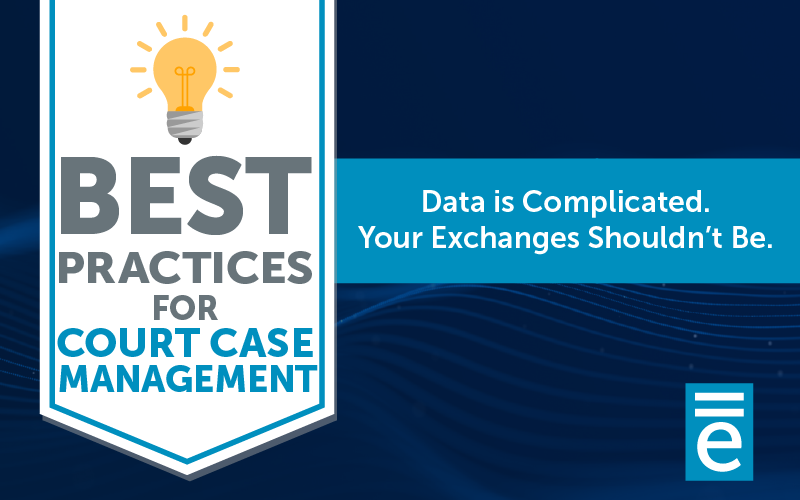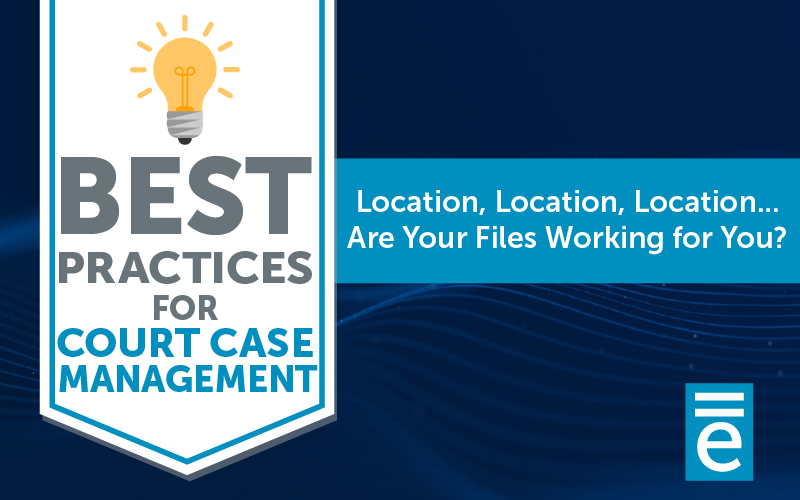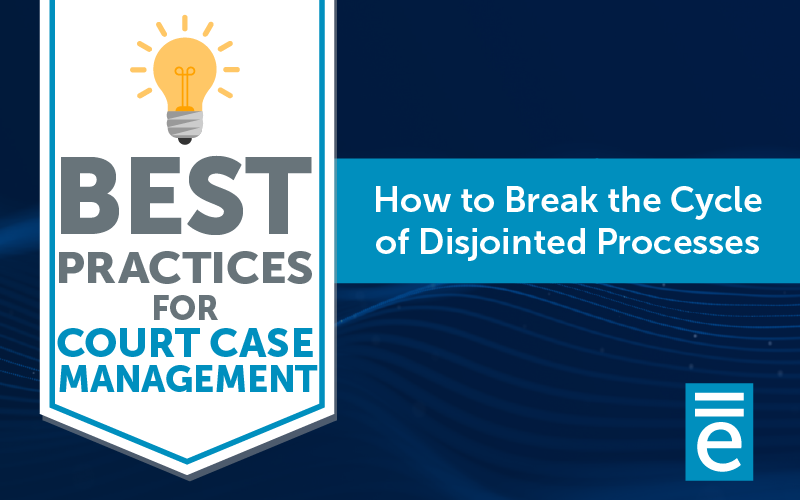EQUIVANT Court
Blog
Whether you are considering investing in a case management solution or you’ve already implemented one, we have content to assist your team. Not finding what you’re looking for?

Data is Complicated. Your Exchanges Shouldn’t Be.
Best Practice: Ensure you’re seamlessly exchanging data with other agencies and jurisdictions, and make sure your team can use the data you receive.

Managing Money: Top 4 Watch-Outs
Best Practice: Avoid these four financial technology watch-outs to help make your clerks’ jobs easier.

Location, Location, Location … Are Your Files Working for You?
Best Practice: Prioritize file storage. It’s the least glamorous and most critical investment you can make in your team’s productivity … and aspirin consumption.

Four Ways to Find it – Fast
Best Practice: Prioritize information access, and build your processes accordingly. Here are four ways your team can prioritize information access and find things faster.

Boost Your Team’s Productivity with These 3 Steps
Best Practice: Automate tasks whenever possible to capitalize on your team’s knowledge and skills, allowing them to focus on the critical elements of their job.

How to Break the Cycle of Disjointed Processes
Best Practice: When designing or refining processes, take time to focus on each specific role and what it entails.

Data Drives You. So Where Are You Headed?
Using data to support decisions is critical at every single stage of justice, and we have to be able to rely on the quality of the data we’re using to make the best decisions possible.

Four Ways to Prioritize Your Team’s Mental Health Right Now
As you’re working to reopen, reschedule, or ramp up operations, here are a few ways you can help your team stay healthy and do their best work.

Collier County: Automating hundreds of processes with Smart Docketing
ShowCase Smart Docketing automatically drives hundreds of processes for Collier County, saving precious time and resources.

Five Simple Ways Technology Helps Justice-Involved Youth
At equivant, we unabashedly believe in alternative interventions for youth that are rehabilitative, not punitive.

6 Ways To Humanize Your Court
Courts strive for better community connection, improved access to justice, more efficient resolution … but how?

Future-Proofing Your CMS? Here’s What to Look For
To future-proof, courts need a strong foundational case management system that will fully meet their needs now and be component-ready for the future.